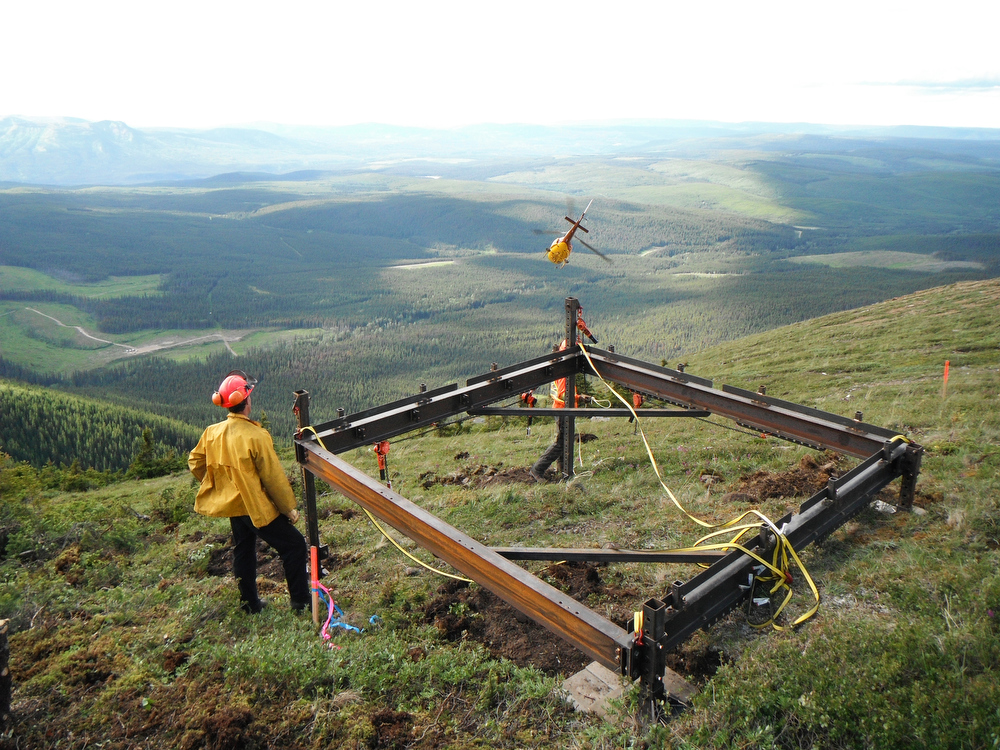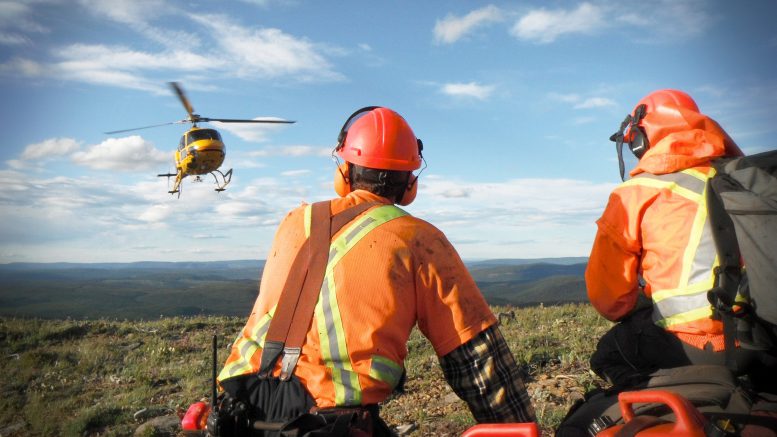David Austin has already sold what may be the largest undeveloped metallurgical coal land package in western Canada for several billion dollars.
Now, in a strange twist of fate, he’s planning to sell some of the same properties again for billions more after a record year for the steel-making commodity.
Colonial Coal International (TSX: CAD), founded by Austin, has about 700 million tonnes of measured, indicated and inferred metallurgical coal across its Huguenot and Flatbed properties in northeast British Columbia, according to respective preliminary economic assessments in 2020 and 2018.
For the past year, 16 of the world’s largest steelmakers, miners and met coal brokers — mostly from Japan, India and China — have been under non-disclosure agreements to pick through Colonial’s books and development plans. Colonial is riding on the enhanced publicity of Glencore’s (LSE: GLEN) pursuit of Teck Resources’ (TSX: TECK.A/TECK.B; NYSE: TECK), which has four met coal mines in B.C. producing about 27 million tonnes a year.
“Teck has basically put a magnifying glass on coal assets in British Columbia,” Austin said by phone from Vancouver. “And that’s really helped us because it’s allowed a lot of companies who haven’t really paid much attention now saying ‘hey, there’s an opportunity there’.”
The prospective buyers for Asia’s steel plants want to secure supplies of metallurgical coal, also known as coking coal, the world’s best performing commodity by value last year when it nearly quadrupled in price to US$660 per tonne. Prices have fallen to less than half that peak, but growing steelmaking in India will help buoy demand longer term, with coking coal accounting for most of the country’s 40% increase in coal imports by 2050, the International Energy Agency says.
Coking coal isn’t easily replaced in steelmaking, although 31% of plants use electric furnaces, according to Los Angeles-based Clean Energy Monitor. Even with widespread calls to cut coal use to fight climate change, global coking coal output is forecast to fall only 9% to 936 million tonnes by 2030 if countries follow current policies, the IEA says. Wind turbine farms and electric vehicle motors all require steel.
Austin is keen for a large partner with the heft and the $1 billion or so to develop the projects instead of Colonial trying to be an operator and diluting the company’s shares to raise the capital, like he did co-founding Western Canadian Coal more than a decade ago.
“When we got bought out, I owned less than half of 1% of the company, and I started it,” he said. “After all that work and I’d have been better off if I hadn’t done that, been better off just to sell in the beginning and not take it into production. So I did learn a lesson.”
Shares in Colonial have gained nearly 30% this year, closing on Friday at $1.58 apiece in Toronto, valuing the company at $281 million.

The projects would have to go through provincial environmental assessments, a process that in December denied Glencore’s Sukunka open-pit metallurgical coal project mainly due to the impact it would have on endangered Quintette caribou. Sukunka would have produced around 2 million tonnes a year.
Michael McPhie, CEO of Vancouver-based Fallkirk Environmental Consultants, with clients such as Ascot Resources’ (TSX: AOT; US-OTC: AOTVF) Premier gold project and Teck’s Elk Valley met coal mines, said the most important factor for provincial approvals is the project’s relationship with Indigenous groups. He said Colonial benefits from the province having invested billions in a rail-link from the area and in the port of Prince Rupert on the Pacific.
“That part of the province is no stranger to the coal business,” McPhie said. “The B.C. government has a pretty well-defined process and if you have relationships in place and you’re able to manage the environmental issues, there’s no reason why a project like this couldn’t be considered for sure.”
Nancy Olewiler, a professor in the School of Public Policy at Simon Fraser University in Vancouver, said developers of Colonial’s projects might have to be concerned about greenhouse gas emissions.
“Project proposals will go through rigorous environmental assessment in B.C.,” she said. “It will be incumbent on the company to provide a fulsome report on how the project aligns with B.C.’s sectoral climate targets and environmental policy requirements.”
Austin says most of the companies interested in Colonial aren’t overly concerned about environmental approvals and that he expects to be retained by any buyer to shepherd the projects through a process he’s done several times. And he knows the properties because he’s got a history with them.
Late night call
In 2010, a confidant pointed out an opportunity: despite millions of dollars spent by Teck and several Australian investors battling in court for ownership of met-coal assets in northern B.C. after a major shareholder died suddenly, licences on the properties were about to expire in less than 24 hours. A call answered at 3 a.m. in Perth, Australia brought Austin the $100,000 or so he needed to acquire the properties.
Austin and his team built up one of the properties, Belcourt, over a decade as Western Canadian Coal and sold it to Walter Energy for $3.3 billion. Austin’s separate company, Northern Energy and Mining, held the Saxon property until it was sold to Anglo American (LSE: AAL) for about $485 million just weeks after the WCC deal.
Walter and Anglo ran the acquisitions as a joint venture. But again, the licences on the properties weren’t renewed and Austin was there to scoop them up.
“I said ‘You gotta be bloody kidding me. We just sold them,’” Austin recounted. “I ended up doing a deal with Anglo and with Walter Energy and I sold them back the majority of the licences. But when we finished doing the paperwork, there was a block of coal licences that neither of them had asked for, which is basically Huguenot.”
This time around there’s the potential for a buyer to also purchase Anglo American’s Peace River met coal properties next to Colonial. They have been for sale since January, Anglo spokesman James Wyatt-Tilby said by email. Combining them into a larger project might produce more than 10 million tonnes of met coal a year, Austin said.
After several coal deals in western Canada in recent years paid US$1.86 to US$3 per tonne in the ground, Austin figures he can rely on a base value of his properties of about US$2 per tonne for a total of US$1.4 billion.
The price of coking coal fell to about US$290 per tonne in April. Prices are expected to decline 10% this year as El Nino conditions improve Australia’s production and demand in China remains uncertain, S&P Global said last month. Austin says Chinese and Indian coal buyers tell him the price will be US$225 longer term. He notes the 2020 study estimated Huegenot would cost US$120 a tonne to start, which should be maybe US$130 now, and fall to US$90 a tonne after a few years.
“The people who buy us out more than probably are not going to take it out of the ground for the next three to four years,” Austin said. “But at US$225 a tonne coal price, even at startup you would make a lot of money.”


Be the first to comment on "Colonial boss scores two kicks at same coal can for billions in B.C."